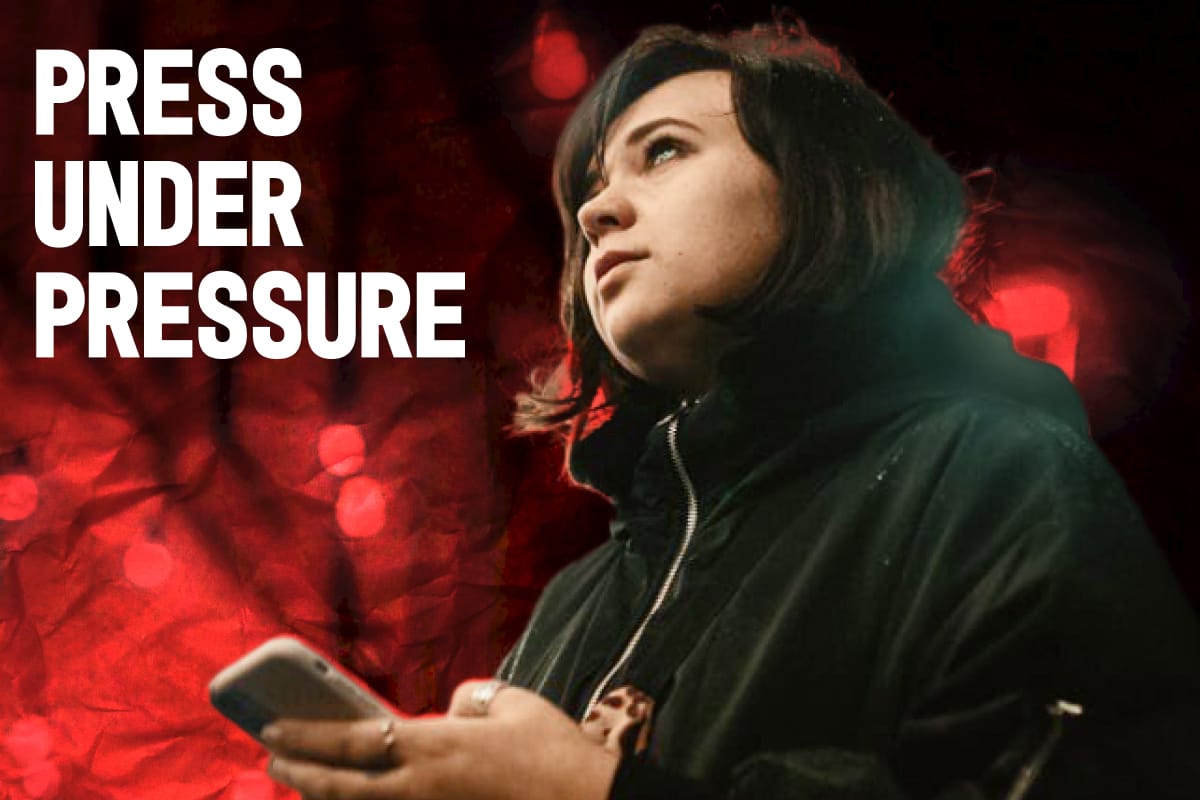
Yauhenia Douhaya is a prominent social journalist and founder of Palitviazynka, which provides assistance to women imprisoned for political reasons. In October 2020, Yauhenia spent three days in the Minsk Temporary Detention Facility and was then released with a fine of $306. Yauhenia was arrested at the entrance to her home, before the eyes of her eight-year-old daughter. In 2020 she left Belarus, lived for a while in Ukraine and is now in Poland.
In an interview with Press Under Pressure, the journalist discussed her experience at the Temporary Detention Facility (TDF), her relationship with her daughter, PTSD and her desire to leave the profession. We also talked about how the Palitviazynka project came about and why Yauhenia is still in the profession.
I still think back to my time at the TDF. I was really taken aback by how much of a nobody you become there. As soon as you walk through the door, it’s like you’re invisible. Nobody cares about you, and nothing depends on you.
Then it occurred to me that it’s like rape – it’s been decided for you, and there’s nothing you can do about it. I was pretty shocked by this feeling and the dehumanisation I experienced. I went on a hunger strike, and it was all about trying to control and influence the situation.
I looked at the walls and thought that if I didn’t do anything about it, I’d probably stay here forever.
I had a cellmate, another girl. I told the screws that I didn’t feel good, that it was very cold in the cell, and asked to be moved to another cell. A guard who looked like Cupid came in – he had a very gentle appearance and very angry, piercing eyes. He asked why I was shouting, and I explained that it was impossible to stay there – it was unbearably cold. I asked that we be moved to another place. He replied that he was not instructed to do that, so I said that I’d go on a hunger strike. He said he didn’t care, but I pointed out that others would care. I remember he asked, “Do you think we care if you died here?” But at that moment, I felt like I was regaining control of my life in some way.
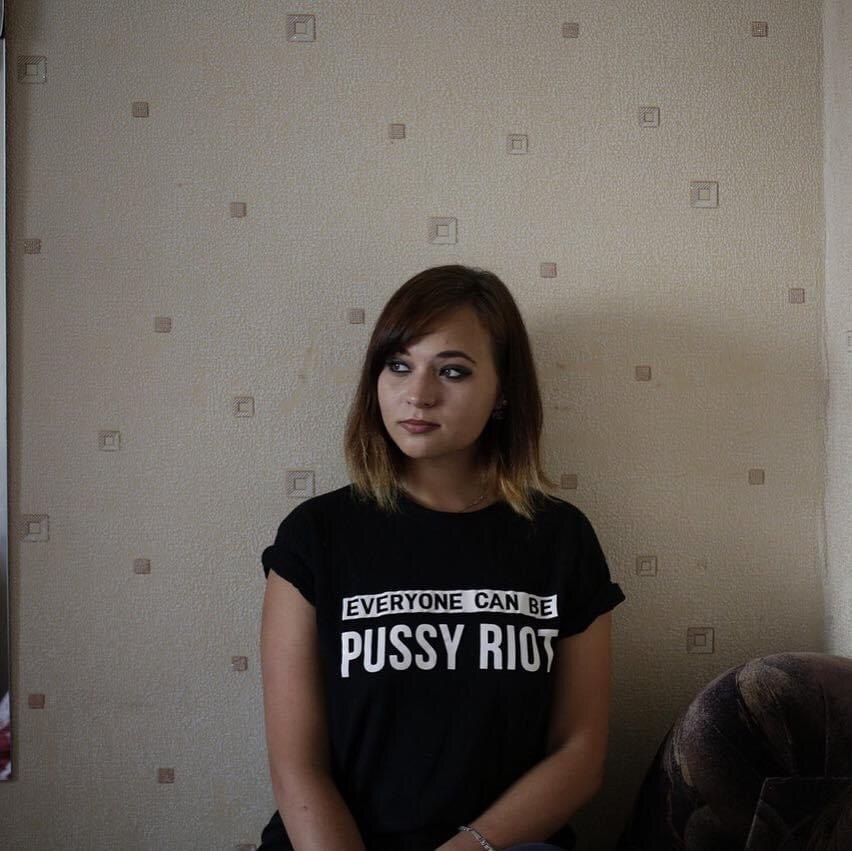
I was apprehended as a journalist. When I was taken from the police station to the TDF, the officers talked to each other about bringing “that journalist”. When I mentioned the hunger strike, I heard someone in the corridor ask who was “getting cocky”, and the other guard said it was “the journalist”.
It was obvious that I was being treated differently because of my job, and the treatment was worse.
One of the guards told me outright: “This is what happens when you write mean stuff about us. Eat it, you little paper stainer”. It was clear that they were holding a grudge.
I was visited by KGB officers and a man who looked very similar to Mikhail Biadunkevich from the Main Directorate for Combating Organised Crime and Corruption. He was wearing a mask, but I knew it was him by the shape of his eyes and the way he carried himself. They talked to me about journalism. They asked me a few questions, including why I repost live streams from Radio Liberty on my Telegram channel. Their logic is that such a share is akin to organising of mass riots. I said then that sharing is just sharing, but it made no impression on them.
They asked me why I wrote mean stuff about law enforcement officers on Facebook. I replied that I did not do any of that. They showed me my publication with photos of beaten people and said, “Well, you do”. I tried to explain that this is a photo fact, an objective reflection of reality. I kept hearing that journalists “stir up hatred and give wrong information”.
I’ve been dealing with some thyroid issues recently, and I think they might be stress-related. My thyroid started to increase, and there were some pretty strong pressure drops. I was really under a lot of pressure at the TDF. I was feeling really stressed and my temperature was all over the place. I was also getting nosebleeds.
Even a short stint at the TDF took a toll on my health. I ended up developing cystitis from the cold and aggravating my arthritis, which is still giving me trouble, and I also developed PTSD. Every day, I find myself thinking about what the cell I was kept in looked like. I’ve been in therapy and I’ve been working on my condition a lot, and I can already recall many things with a smile, but these repetitive thoughts still remain.
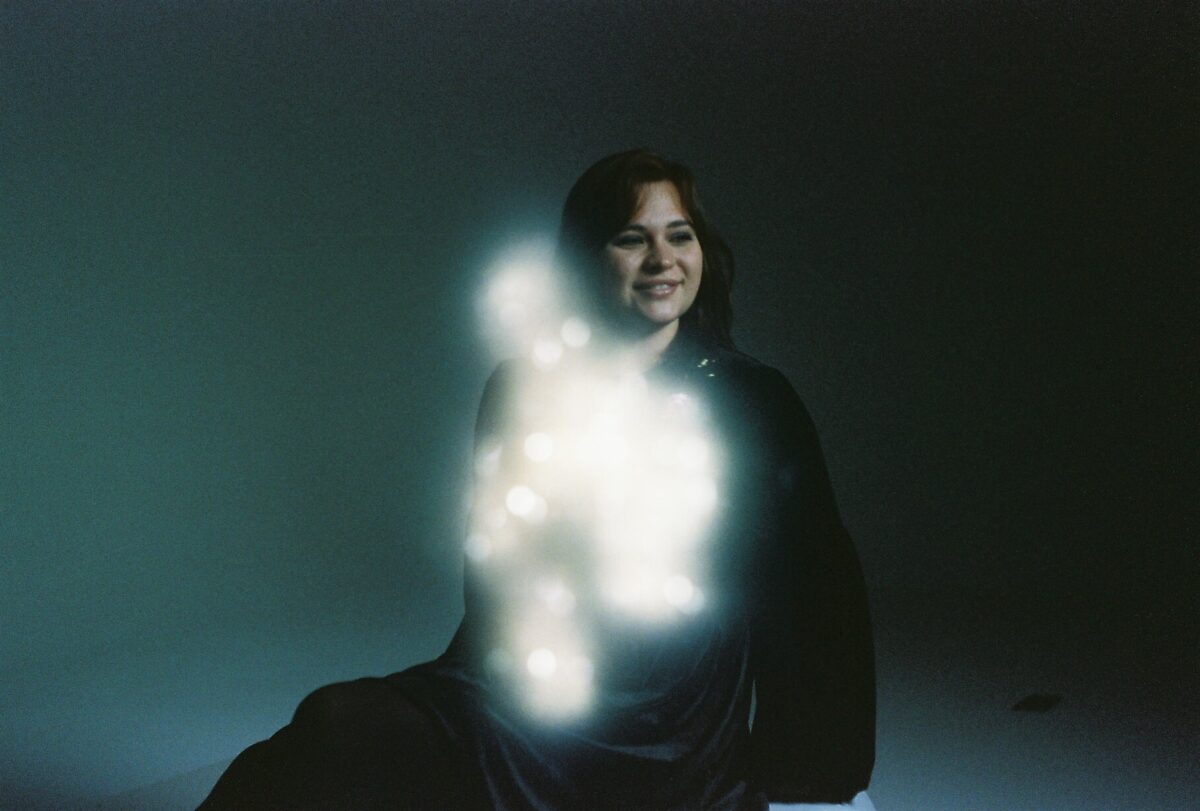
Two weeks after I was released, I left because I saw that the police were constantly present around my home. They’d come in through the entrance or just walk by, and it was really frustrating. I remember one day I was in the store across the street, packing groceries, and I looked through the window and saw some policemen entering my block of flats again. I then spent about half an hour waiting in the store for them to leave, and that’s when I realised I had to get out of the country because I wouldn’t be able to last for much longer.
I left through Brest, through the official border crossing. I was pretty sure I was going to be away for a month, so I packed a few bits and bobs: pyjamas, two shorts, two underpants, two bras, two pairs of socks, a jacket and two books – one about the Holocaust, one about a concentration camp. That’s all!
In Poland, I was told that I had to apply for asylum, but I didn’t know anything about it then. I thought they’d take my passport, send me to the detention centre, and I’d live there for the rest of my life. So I decided to go to Ukraine and wait there. I thought I would return to Belarus after the New Year, but it didn’t work out.
I left, and my daughter would be brought to me every so often. I was going to meet her in May. She had a ticket, and then they forcibly landed the plane with Raman Pratasevich on board. All flights were cancelled, so I had to get a certificate saying that my daughter was going to Ukraine for treatment so that she could cross the border. In the end, Sashka’s trip took 36 hours – she was held up at the border for a very long time.
After I left, my daughter remained in Belarus and she got calls and occasional visits from the KGB. They visited her at school. They asked where her mother was, where I had gone. She was eight years old.
The only teacher who spoke up was the one who said that the KGB officer could only talk to the girl in the presence of her parents.
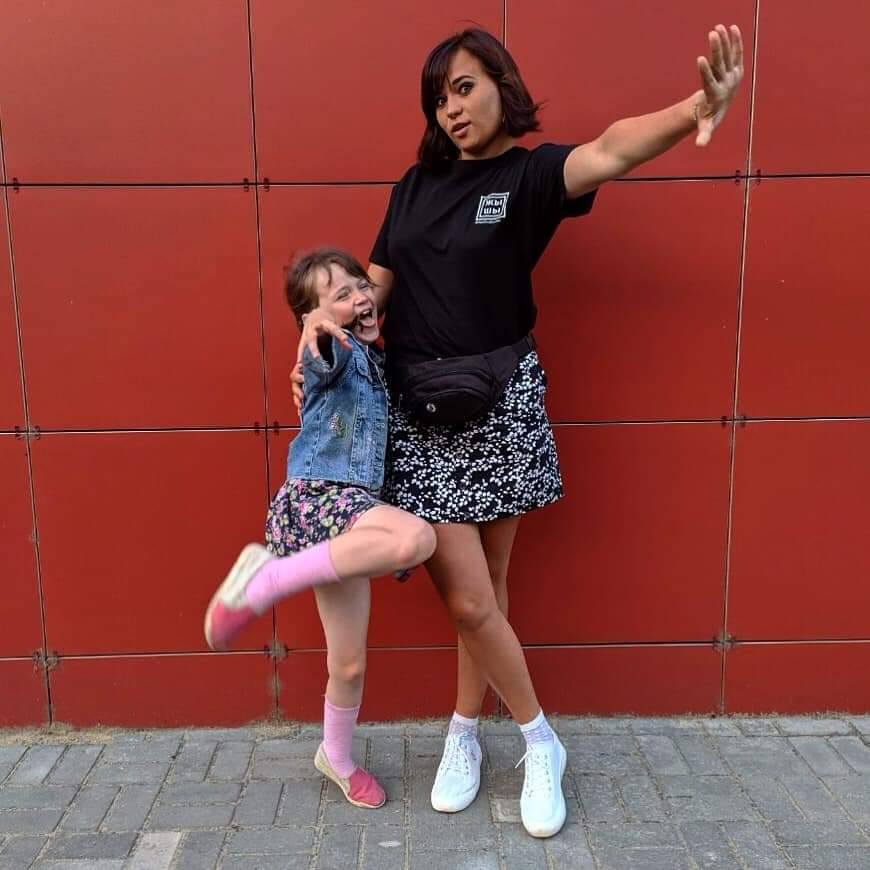
Yauhenia and her daughter Sasha
When my daughter and I finally met again, it was tough to build intimacy again. She was pretty closed off and a bit prickly. It doesn’t matter how many times you tell a child that this separation was due to evil people; she’ll still think that she was abandoned. We then went to the seaside in Berdiansk, and as time went on, our relationship improved. And suddenly, the war began in February. We went to Poland.
When I was living in Ukraine, I never thought about quitting journalism. I thought you can’t give up. You need to work harder and harder so that everything ends faster. You need to be in over your head at work.
Back then, journalism was my escape from the harsh realities of life. It made me feel like I was doing important things and that everything would be fine soon.
At Reform.by, we ran the project “Liquidation” about the shutting down of NGOs in Belarus. I was involved in the investigations. It was probably the most productive period I’ve had in terms of work. It was then that I created pieces that I am most proud of now.
That’s when I came up with Palitviazynka. I felt like I was at a loss, and this idea helped me deal with that feeling. I saw women’s specific experiences being devalued.
Another journalist once told me that since I left, I should just hold my tongue. But he didn’t know what I had gone through and how I checked my phone several times every night to make sure my daughter wasn’t arrested in Minsk.
Women’s experiences are different, and they are different in prison. I once told this to a Ukrainian journalist, Lesya Hanzha [now Lesya is a drone operator in the Armed Forces of Ukraine – editor’s note], and she asked why there isn’t a project about it yet.
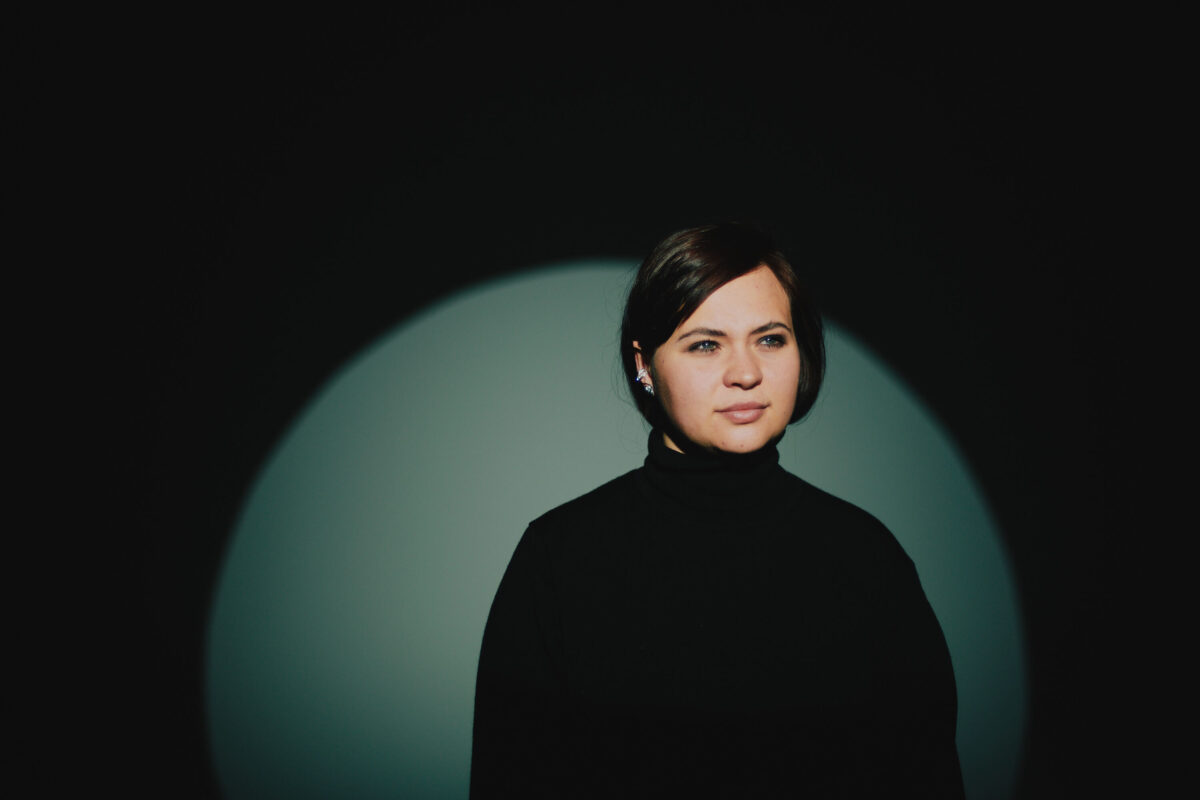
I know that many people, especially at the beginning, thought it was funny to call it Palitviazynka. We came up with this word together with Lesya Hanzha and Maksym Butkevich [human rights defender Maksym Butkevich was taken prisoner, convicted and is now in prison in the so-called Luhansk People’s Republic – editor’s note].
Maksym worked a lot around hate speech and said that language is a powerful tool that affects everything. I think it’s important to use a feminine ending for Palitviazynka to highlight the female experience.
When I first started, I got a lot of complaints, as if I was “dividing” political prisoners. But Palitviazynka doesn’t stop people from helping male political prisoners!
We’re talking about a specific female experience and the needs that women have but men don’t. A man can get an extra piece of lard for the money a woman spends on pads. It cannot be ignored that we are in unequal circumstances. We have a different kind of anatomy, and we are more often confronted with diseases of the urogenital system. This needs to be discussed.
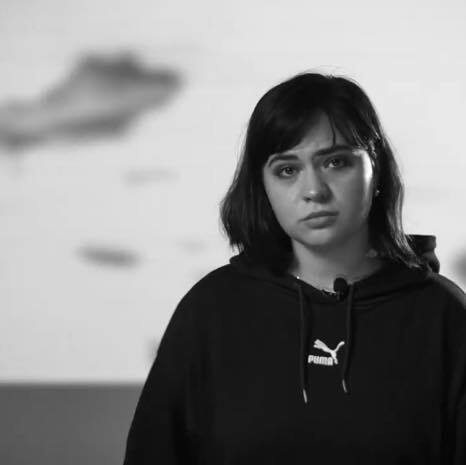
At first, we thought we would simply interview female political prisoners after their release, interview their families, write letters to prisons, and create prisoners’ biographies. We planned for Ukrainian media women to talk about our female political prisoners. And then the war started, and everything changed. We started the project anyway because we already had prisoners’ portraits drawn by Hanna Tatur.
Currently, we have gone beyond just biographical information and interviews. It’s really important to me to show how different the female experience of prison life is. The Belarusian Women’s Union likes to talk about respect for women and creativity, and propagandists like to show how Lukashenka loves women…
I’ve spoken to women who’ve been in a Belarusian prison and I can see that this system just hates us. It hates women.
It was important for me to show this closed system in as much detail as possible. I think it’s really important to document how it’s currently set up. It’s our hope that when the situation changes, we can use this information. I just see that the system destroys women both physically and morally. They are mere shadows of their former selves.
I’ve been reading a lot of books about ghettos, concentration camps and gulags recently. I’m interested in how different people have described different aspects of violence in very subtle ways. And, of course, I compare it with our current system. I’m really impressed by how meticulously this system is designed to destroy people.
When I hear women’s stories, I get the impression that women’s prison is still based on mutual aid to a greater extent. Menstruating women help each other to cope with the situation. Because what usually happens? If a female political prisoner is included on the “terrorist list”, she is unable to receive commissary money or care packages. For women like that, other inmates make hiding places where they put several pads. They chat quietly among themselves about the possibility of getting pads at a certain time and in a certain place. Some sew their own pads. You shouldn’t do that, but what’s left?
I remember one interview where a journalist asked a former political prisoner how he managed without sex in prison. I was pretty upset because I know that the women there are so busy with work that they don’t have time to think about it.
They have to make a choice between going to the toilet or having tea because they can only do one thing at a time. But the media focus on how men masturbate in prison, and don’t discuss how menstruating women cope.
Some women are happy when their periods stop! This is a sign that something might be wrong with their health, but it also means they have fewer hygiene problems.
My mood swings from one extreme to the next. It’s enough to make you weep, especially when it seems like no one cares about my work at all. It seems like everyone has forgotten about political prisoners and is just living for their own ambitions.
To deal with that, I try to lead a healthy lifestyle and avoid anything that might upset me. When I work on Palitviazynka, I feel like it’s really helping me. It’s made my life a lot more full.
It would be tough for me to live with the idea that I know Nasta Loika [an imprisoned prominent human rights defender – TN] and don’t say or write anything about her. I know that she wants her situation to be covered. She wants to be remembered.
I think we as a society could be doing more to get people out. From the start, it was a big mistake to make political prisoners into heroes and treat them as symbols of the struggle rather than as living people.
I don’t like it when they say that you have to accept that political prisoners will have to complete their sentences. Just live with that. No, we need to use more leverage tools. Take the Olympics, for instance. It’s a great opportunity to highlight political prisoners. As we know, Lukashenka wants his athletes to perform everywhere. So it should be used to set free at least one woman pensioner with cancer! I really think that we are not doing much. This is a call out for me and others. We’re living in the year 2020, and it’s clear that things will never be the same again.
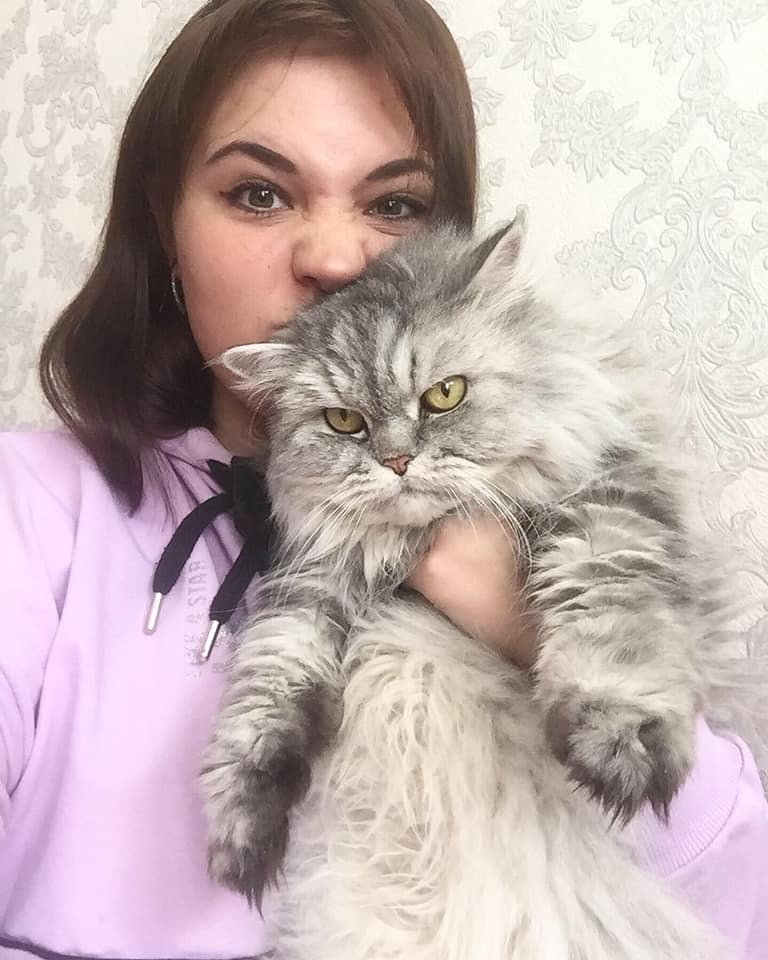
Yauhenia and Cat Motya, who stayed behind in Belarus
For the past year, I have been thinking about quitting journalism every day. I have certain plans. There’s a lot of frustration with the way our journalism works.
A lot of editors want us to put our heart and soul into our work, to see it as a mission. And I think that no one should lay oneself out, and journalism is not a mission. You work for next to nothing for a while, and then you get the boot when you stop being convenient.
I was pretty bummed when my colleagues voted for me in an award contest, but it went unnoticed. I spoke up and got a lot of criticism. I’m tired of it and generally worry too much about recognition. Two weeks later, one of these critics himself said that his work wasn’t getting the attention it deserved.
It was a real turning point for me. I realised that I needed to focus more on myself and my well-being. I haven’t left yet though. It’s a shame to leave, especially when so much has already been done! My commitment keeps me going. I want to see what happens next.
Terms and conditions
Partial or full reprint is permitted subject to following terms of use.
An active direct hyperlink to the original publication is required. The link must be placed in the header of the reprinted material, in the lead or the first paragraph.
Reprints, whether in full or in part, must not make changes to the text, titles, or copyrighted photographs.
When reprinting materials from this page, attribution must be given to the Press Club Belarus “Press under Pressure” project, collecting evidence of repression against independent media and journalists in Belarus.